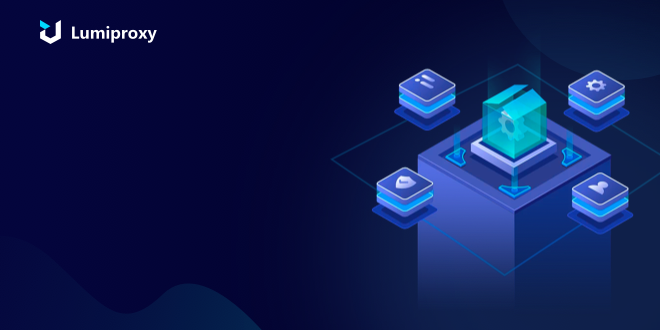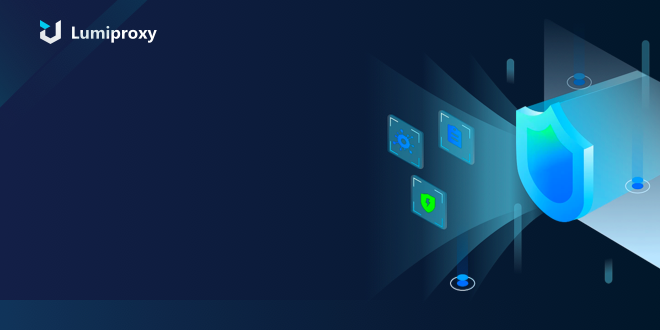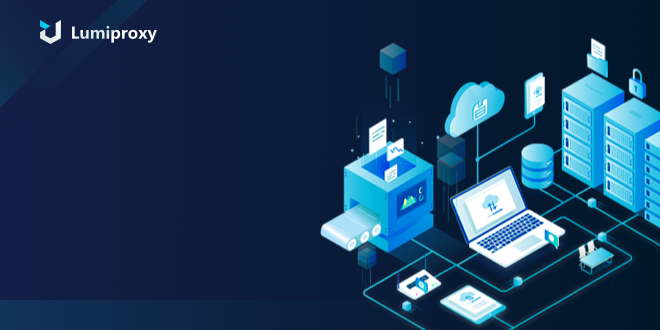In the age of the Internet, proxies play an important role in many areas. Both individual users and businesses may need to use proxies to protect their privacy and data security. Anonymity level is an important consideration when choosing a proxy service. In this article, we will introduce the anonymity level of proxies and explain why anonymity is important when using proxies.

I. Anonymity Levels of Proxies
The anonymity levels of proxies are usually categorized into three types: transparent proxies, anonymous proxies, and high anonymity proxies. They differ in hiding the client's real IP address and other identity information.
1. Transparent proxies:
Transparent proxies, also known as normal proxies, are characterized by not modifying the requested information during transmission. Using a transparent proxy, the target website can obtain the client's real IP address and other relevant information. This means that transparent proxies provide less anonymity and the real identity and location of the client is easily recognized.
2. Anonymous Proxy:
The anonymous proxy hides the client's real IP address when transmitting the request, but still passes some other information such as HTTP headers. Although the target website cannot directly recognize the real IP address of the client, it can still detect the use of a proxy. Therefore, anonymizing proxies provide a higher level of anonymity than transparent proxies, but there are still some risks.
3. High-anonymity proxies:
A high stash proxy, also known as a deep anonymizing proxy, completely hides the client's real IP address and other identity information when transmitting requests. With a high-anonymity proxy, the target website cannot recognize that the client is using a proxy, thus providing the highest level of anonymity and privacy protection.
II. The Importance of Anonymity
Protecting personal privacy and data security is critical on the Internet. Anonymity is important when using proxies for several reasons:
1.Privacy Protection:
On the Internet, a user's IP address and other identifying information is an important part of personal privacy. The use of an anonymous proxy or a high hiding proxy effectively hides the user's real IP address, thus protecting the user's privacy from unlawful intrusion.
2. Prevent tracking:
Many websites and advertisers collect users' IP addresses and browsing habits to track users' activities and use them for ad targeting and user behavior analysis. Using an anonymous proxy prevents tracking and protects the user's personal information from being misused.
3. Bypass blocking and restrictions:
Some regions or network environments may block or restrict access to specific IP addresses. Using an anonymous proxy or a high stash proxy can bypass these blocks and restrictions for a freer access experience.
4. Network Security:
Anonymous proxies and high stash proxies can provide users with an additional layer of network security, and hiding the real IP address can reduce the risk of exposure to network attacks.
5.Competitive advantage:
In business competition, companies may need to analyze and monitor competitors. Using a high anonymity proxy can help an organization hide its true identity from competitors and obtain more accurate competitive intelligence.
III. How to check the anonymity of a proxy
1. Check the type of IP address:
When using a proxy, first check your IP address type. Transparent proxies usually expose your real IP address directly, while anonymous proxies and high hiding proxies hide your real IP address.
2. Use an online proxy detection tool:
There are many online tools that can help you detect the anonymity of a proxy. These tools will show you the IP address you are currently using and the anonymity level of the proxy.
3. Analyze HTTP headers:
Looking at the HTTP headers of a proxy request can help you see if the proxy is leaking some critical information. Transparent proxies usually reveal the real IP address in the header information, while anonymous and high-anonymity proxies try to hide this information.
4. Use IP Location Service:
Use IP location services to see the geographic location of the proxy server. If the location of the proxy server doesn't match your actual location, then this is a sign of an anonymous or high stash proxy.
5. Check the type of proxy server:
Different types of proxy servers offer different levels of anonymity. Transparent proxies usually offer low anonymity, anonymous proxies offer medium level of anonymity, and high stash proxies offer the highest level of anonymity.
6. Test access to websites:
Use a proxy to access some restricted websites and observe if you are able to access them successfully. If the proxy is recognized and restricted by the website, then it may have lower anonymity.
Summarize:
Anonymity is critical for proxy users. Different levels of anonymizing proxies offer different levels of privacy protection, and users should choose the right proxy service for their specific needs and usage scenarios. Both individual users and businesses can achieve a higher level of privacy protection and secure access experience on the Internet by using anonymous proxies or high stash proxies.
























 English
English